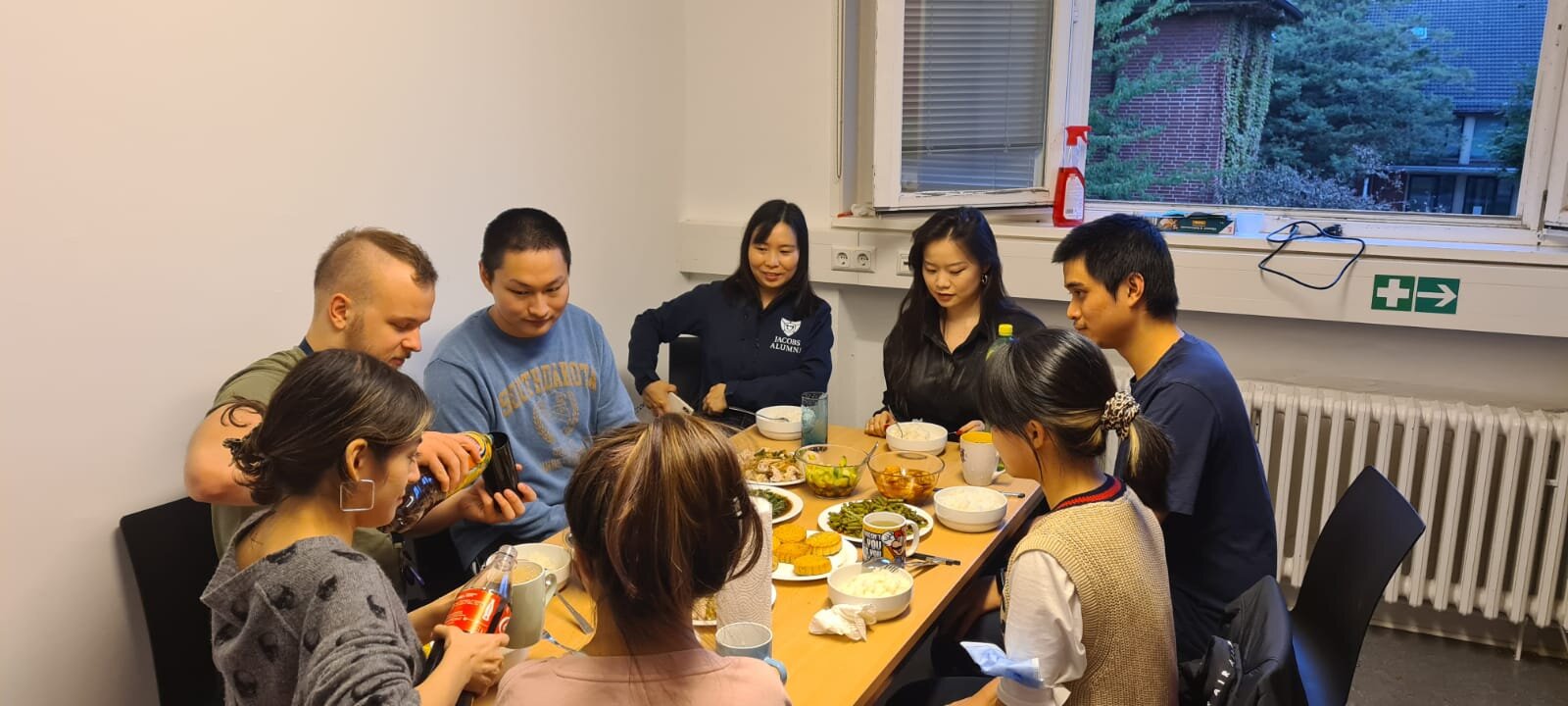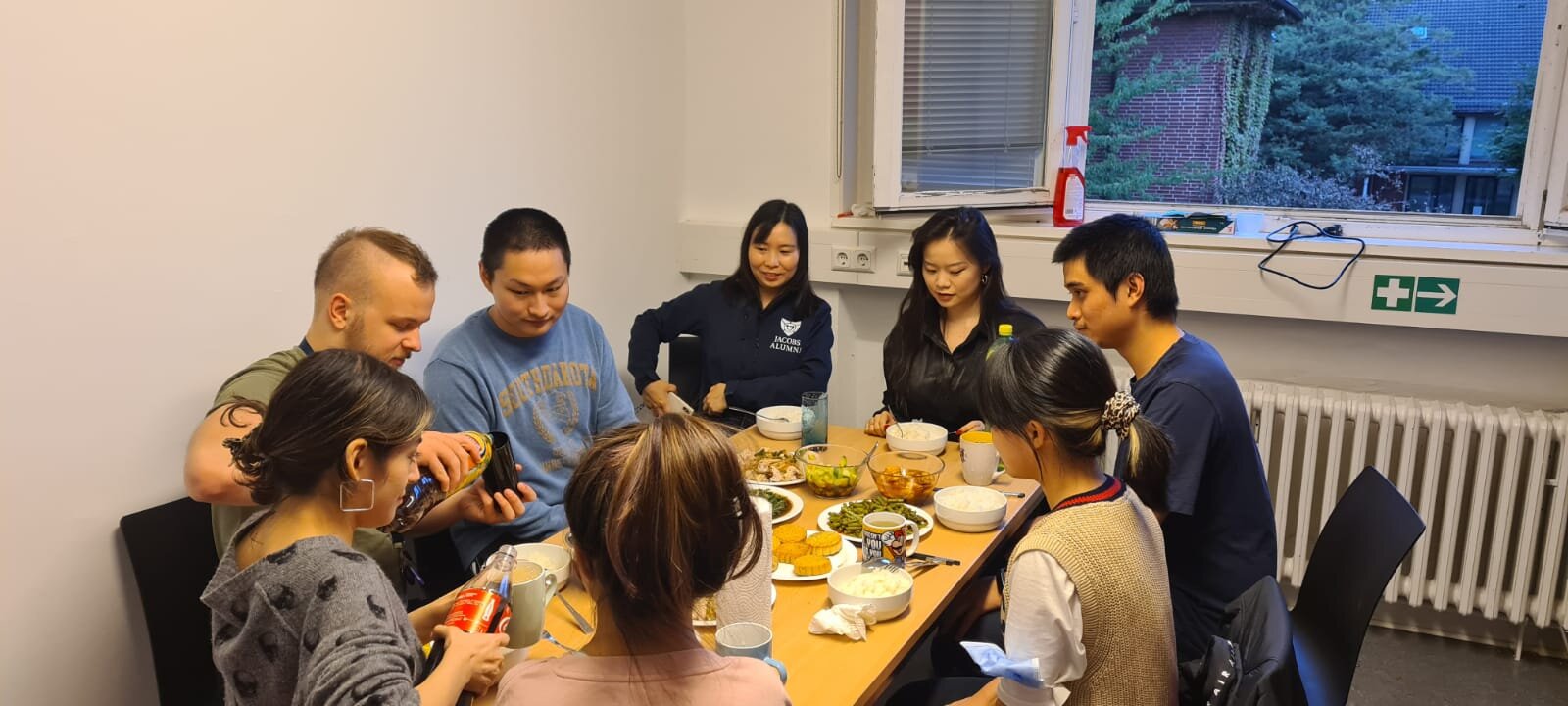
Chinese mythology, when one rather ponders over it, has much to offer - whether in simple tales or in shape of lessons passed down from generation to generation.
I remember vividly hearing about the Tale of Nine Dragons and the Dragon King. There was verse from the legendary Chinese artist Chen Rong that goes something like “In the world where people longed for rainfall, Suoweng - that is I - sketched forth Nine Dragons”
This year, I had the pleasure of sitting down with some of my fellow colleagues celebrating the Moon Festival or some may call it, The Mid-Autumn Festival The Moon Celebration, also known as the Mooncake Festival, is a traditional Chinese and Vietnamese festival that is celebrated in mainland China, Taiwan, Hong Kong, Macau, and Vietnam, as well as by overseas Chinese and Vietnamese populations. In Japan, Korea, and throughout Southeast Asia, similar holidays are observed.
It is one of the most important holidays in Chinese culture, second only to Chinese New Year in terms of popularity. The Mid-Autumn Festival has been celebrated for over 3,000 years. The event takes place on the 15th day of the 8th month of the Chinese lunisolar calendar, which corresponds to mid-September to early October on the Gregorian calendar, with a full moon at night.
The Chinese think that the moon is at its brightest and fullest size on this day, which also happens to be harvest time in the midst of Autumn. Lanterns of all sizes and shapes are carried and displayed, serving as metaphorical beacons that guide people to prosperity and good fortune. Mooncakes, a rich pastry filled with sweet bean, egg yolk, pork, or lotus seed paste, are commonly served at this event.
The legend of Chang'e, the moon goddess in Chinese mythology, provides the inspiration for the Mid-Autumn Festival. Chang'e is the subject of many legends, including one that is widely accepted as the origin of the Mid-Autumn Festival. Chang'e was a beautiful woman in one tale, who lived in the ancient past. The Earth had been burnt by ten suns rising simultaneously in the sky, inflicting suffering for the inhabitants. Houyi the archer took out nine of them, leaving only one Sun, and was rewarded with either two or one elixir of immortality.He didn't eat it right immediately, preferring to leave it with Chang'e since he didn't want to achieve immortality without his loving wife. While Houyi was out hunting, his pupil Fengmeng broke into his home and attempted to compel Chang'e to give him the elixir. Instead of offering them to Fengmeng, she stole them. Chang'e then sailed upward past the heavens, settling on the Moon as her home because she adored her husband and wished to be close to him. When Houyi realized what had happened, he felt bad, so he showed the fruits and cakes that Chang'e had eaten before killing himself. Chang'e allegedly stole the elixir from Houyi, drank it, and soared to the Moon so that her husband could not track her down. Chang'e is a character in Wu Cheng'en's work Journey to the West, published in the late 16th century.

At Jacobs University, of course, we didn’t have the lanterns to really explore the festival in the best lights, but we had mooncake. I’ve been to almost every continent on Earth and I’ve eaten sweets and food from almost every major culture and background, the mooncake that Kevin made in the Krupp-E kitchen space, however, is something I will always remember.
“For me, the Mid-Autumn festival has turned into the time of the year when I can give myself an excuse to cook for a bunch of friends,” Zheng Hong Maoqi Zhu, Psychology major, said. “I haven't been back home ever since the summer of 2018, so every celebration we had was all a piece of blurry image in the back of my head. Back in my region, I remember we don't have anything particularly different -- we gather with our family, have a nice dinner, appreciate the moon while enjoying moon cakes. I always hated moon cakes when I was in China because they were unbearably sweet. But now it has become a symbol of nostalgia.”
Unfortunately, because of a heavy cloud cover, it was not possible for us to see the moon as we ate and drank. “I always feel like the mid-autumn festival is not complete without seeing the moon, and if so that would be such a pity. Usually, I would have a walk or just enjoy my time under the moonlight, and then recite the poems about the moon. Back in college, I would always wait for the moon to come out and then go and wander around the sports field,” Suhang He said, who’s pursuing his postdoc.
BY MUHAMMAD SHAHZAIB TAHIR AWAN (PAKISTAN) | CLASS OF 2022
